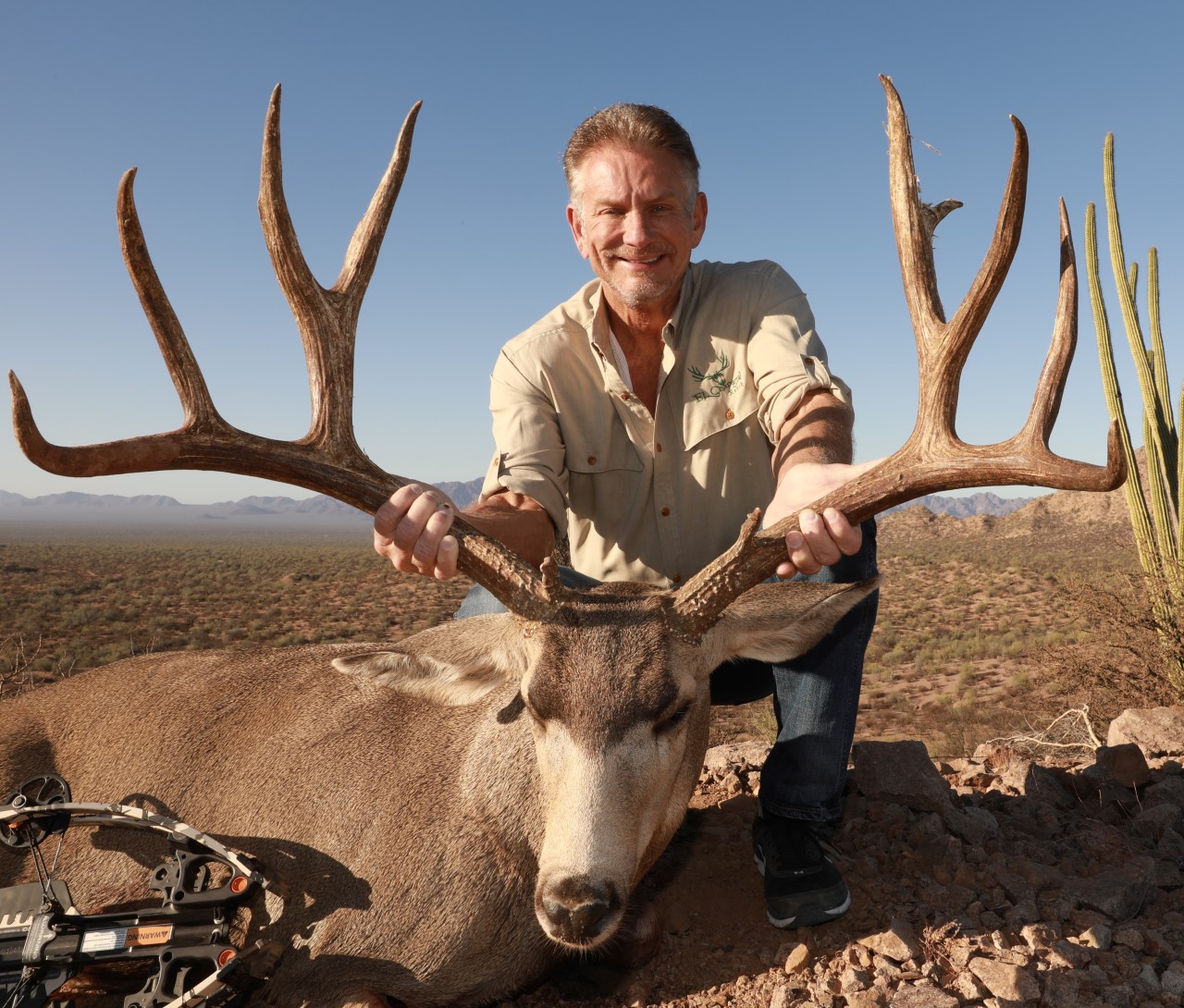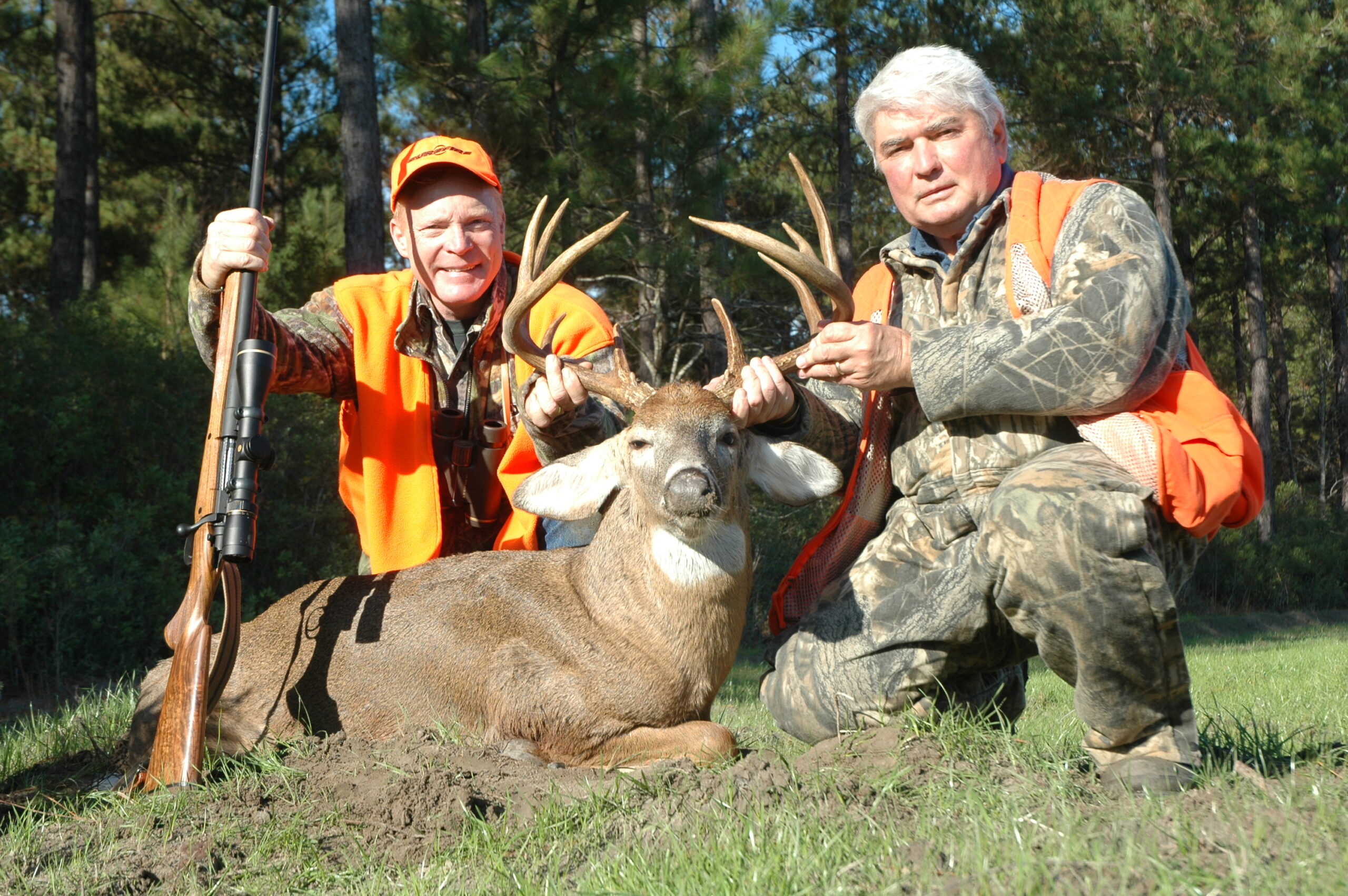It’s human nature to self-identify, to have our own private perceptions of who and what we are. We all have internal measures of those attributes and proclivities that coalesce to define our uniqueness. I identify, for example, as a husband, a father, a scientist, an agriculturalist and a hunter. This list of my own self-identities is neither comprehensive nor in order of priority.
The roots of some of my self-identities are easy to trace. I identified as a husband from the day I got married, pledging a lifelong commitment to my young wife before her, my God and myself. The same is true of fatherhood. My father self burst onto the scene the moment the first of my six children was born, from that day forward commanding a large portion of my self identity. I pursued advanced degrees in science and became a scientist and, through an interplay of cause and effect, came to think like a scientist. I had the good fortune to grow up on a farm, so agriculture has always been a part of who I am. How I came to be a hunter is a bit more mysterious, even to myself.

I’m the youngest of eight children and the only one who is a hunter. A couple of my brothers have hunted casually and occasionally, but I’m the only one of the brood who had a passion for hunting from a young age, a passion that continues to grow with each passing year. My father, like most male members of the Greatest Generation, hunted when he was a younger man. But I never hunted with him nor saw him hunt nor learned of hunting from him. He had ceased to participate in hunting by the time I came along, from which I infer that he never had a real passion for it either.
I’ve always been an avid reader, and among the first things I enjoyed reading as a kid were hunting publications. They fascinated me. They called to me and drew me in. Reading about hunting did not shape me into a hunter, but it did help validate the hunter within me. I started hunting squirrels with a .22 as soon as I was allowed. I graduated to rabbits with a single-shot 20-gauge before high school, and I remember the anticipation of being allowed to hunt deer when I turned 16, the arbitrary age at which my parents decided I would be old enough to responsibly deer hunt. Where they came up with this magical number of elapsed years I will never know. My parents passed before I ever found out, and my father never deer hunted in his life.
Our farm was in part of the Midwest that had few deer during my early years, which is a hard concept for today’s young hunters to appreciate, given the deer populations we now enjoy. Turkeys hadn’t yet been reintroduced to our part of the world and pheasants were huntable, though uncommon. So I cut my teeth on squirrels, rabbits, woodcock, quail and occasional waterfowl and furbearers. I truly believe that the skills I developed pursuing such “mundane” small game laid the foundation not only to become a successful hunter when I eventually moved on to other hunting opportunities, but also to be profoundly grateful for those opportunities when they eventually came along. Since I had no one to mentor me, I taught myself. I eventually hunted deer for several years before taking my first one, bowhunted deer for several more years before (unsuccessfully) loosing my first arrow at one, tramped miles upon miles before flushing my first rooster pheasant (I was so shocked when it finally happened that I never got off a shot), and wasted countless shells before taking my first woodcock with that short-barrel, open-choked 20-gauge. But every fruitless hour spent sitting or tramping, every lost arrow and every wasted shotgun shell taught me something, not just about hunting, but about myself.
Along the way, these pursuits gradually taught me that it was the effort invested and the lessons learned that made me so passionate to hunt. Hard work truly is its own reward, and hunting is sometimes very hard work, indeed. As a kid, it was the hard work of trying to take a deer with an arrow when bowhunting equipment was primitive compared to today’s and deer densities were, by current standards, miniscule. It was the hard work of being my own flushing dog through miles of weedy fence lines and punishing thorn brambles, hoping to raise a covey of quail or a cackling rooster pheasant. It was the hard work of learning to be constantly ready to mount, cock and shoot well in under a second if there was any hope of killing a woodcock with that single-shot 20-gauge.

But the harder the work, the more cherished the rewards. Nothing tastes as good as a hard-earned rooster pheasant or venison loins whose cost can be measured collectively in weeks of devoted bow practice, days of patient waiting, and hours of shivering, cold anticipation. But eclipsing those tangible rewards are the personal ones. Some, like the lessons in patience, are easy to innumerate while others are almost impossible to tally or even recount.
I’ve yet to find a way to articulate the value of watching a Cooper’s hawk playfully and repeatedly release and recapture a songbird, seeing a bobcat at close range in an area that was officially devoid of bobcats, having a great horned owl land arm’s length from my face so that I was able to see the individual feathers that made up its ear tufts, all of these experiences and countless others while going unnoticed by the actors in those natural plays. Hunters understand the natural world around them better than most others by virtue of experiences like these.
I’ve been fortunate to hunt more exotic species in farther places than some and will never have the means to enjoy the far-flung locations and their resident game that will some others. And that’s fine. The patience learned while waiting for an opportunity at a whitetail where densities were only a few per square mile translated into the patience to apply for 13 years to draw a Shiras moose tag. The dogged determination to work just one more mile of fence line in hopes that it would hold that elusive rooster pheasant became the stubborn fortitude to wade another mile through the heavy snow and thin air to where I can hear the outfitter’s hounds have treed a mountain lion. The location and the species, the antlers and the hide are far less important than the intangible gifts that any hunt can provide.
My passion for hunting has never waned and I pray that it never will. I never want to say good-bye to that particular identity. Rather, I’ve introduced that part of myself to my own kids in hopes that they would find a like-minded part of themselves. Some have and some have not, and that’s OK, too. They possess other identities that I never will. I’ve already made the same introduction to some of my grandkids, but they are too young. So far those introductions have taken place in the pages of books and magazines and through stories about the mounts on my walls. Soon my hunter self will take them to the woods and the fields and the marshes and see if there are hunter selves waiting to be recognized among the many selves that make them.–Steve Mroczkiewicz




